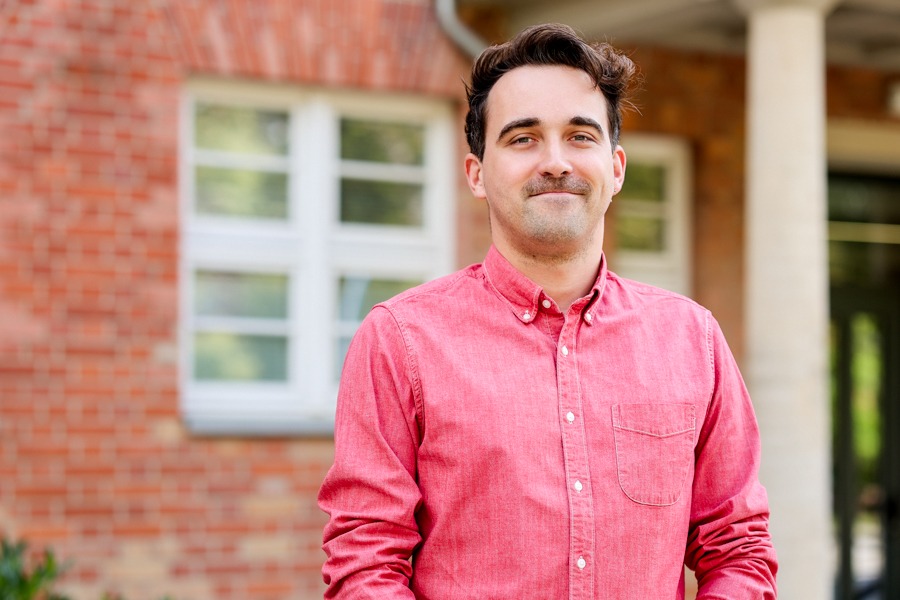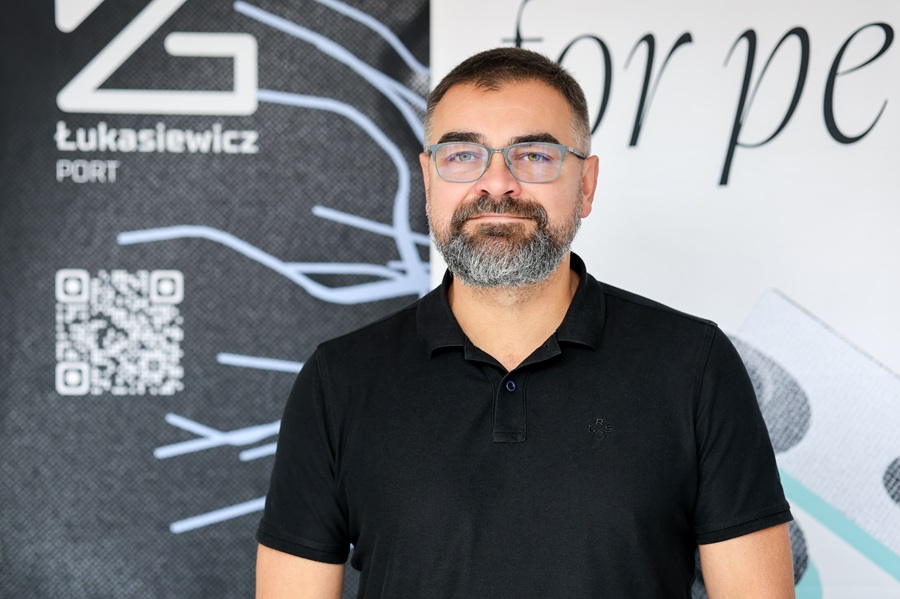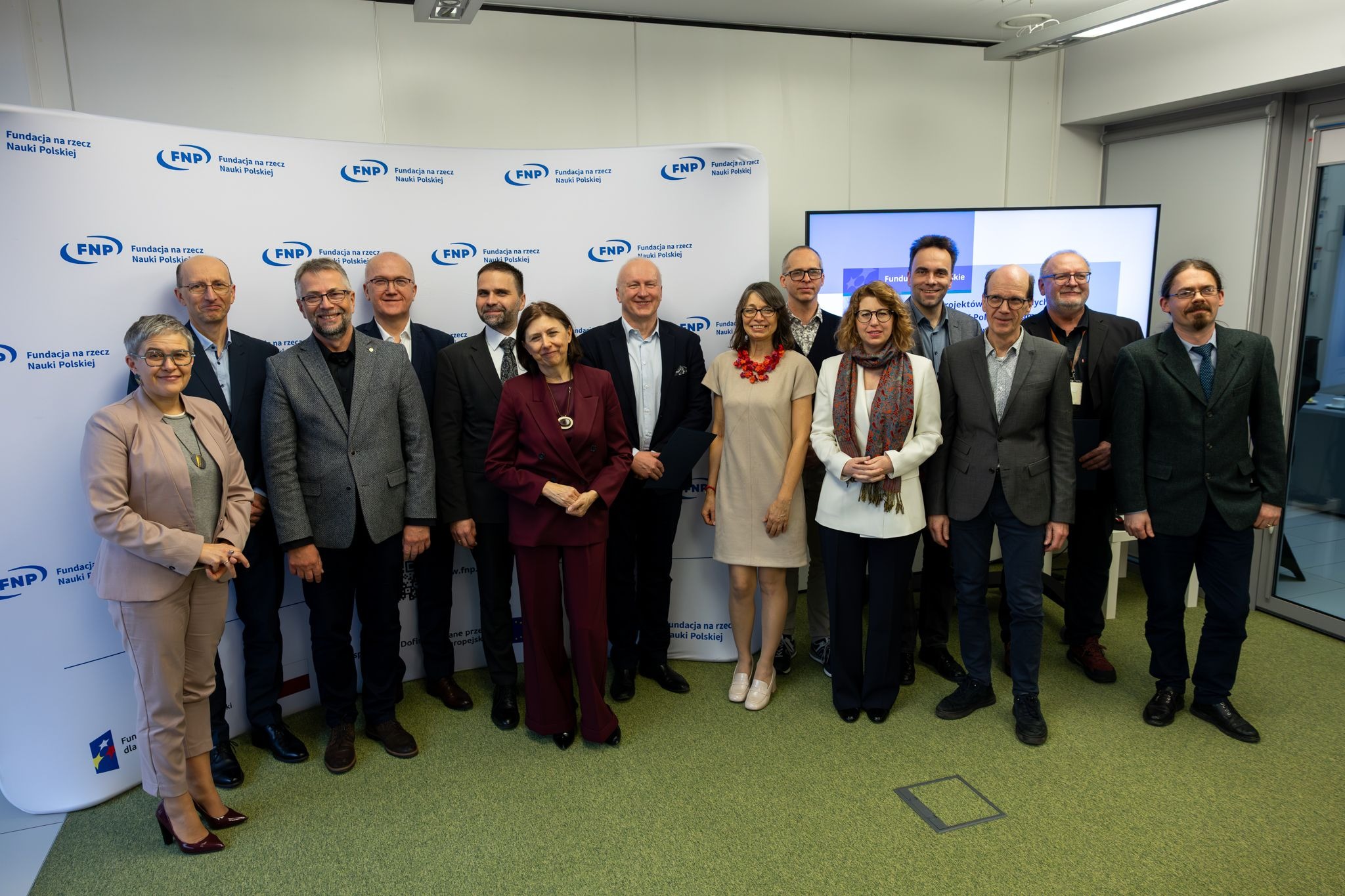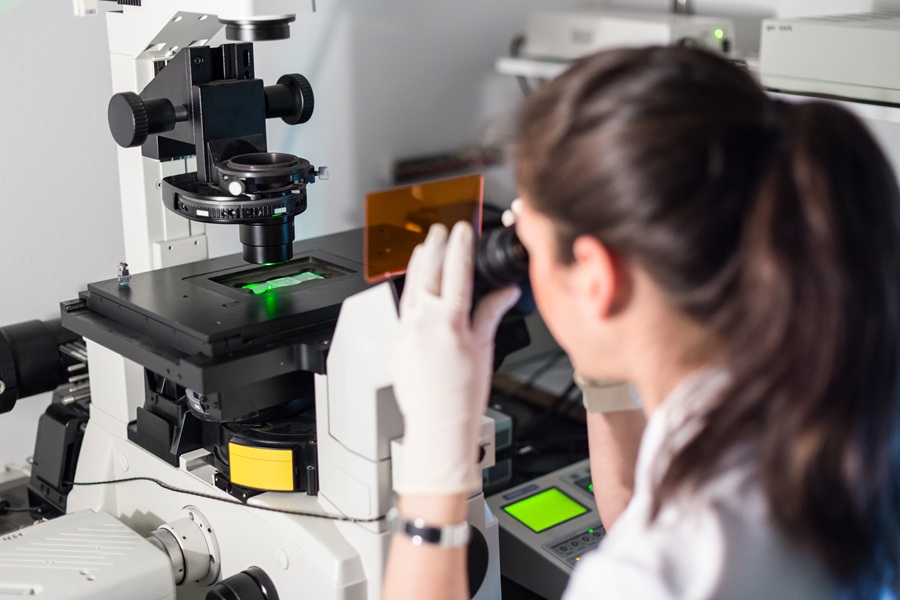With a determination that has driven him since childhood and a passion unshaken by setbacks, Dr. Mateusz Kucharczyk, Head of the Cancer Neurophysiology Group at Łukasiewicz – PORT, is now recognized as one of the most promising young scientists in Poland. A recipient of the Minister of Science’s Scholarship for Outstanding Young Scientists, former Marie Skłodowska-Curie Fellow, lecturer, mentor, and leader of an interdisciplinary research team, Dr. Kucharczyk is conducting groundbreaking research at the intersection of neurobiology, oncology, and emerging technologies. In conversation, he emphasizes that success in science requires more than just talent – it demands perseverance.
I always knew I wanted to be a scientist
“I knew I wanted to be a scientist when I was just ten years old,” says Dr. Kucharczyk. “In high school, I followed an individual learning program because I spent most of my time attending classes at the Jagiellonian University and the University of Agriculture. I was more of a guest at school.”
Fascinated by chemistry, physics, and biology from an early age, he always planned to pursue science and technology. Studying biotechnology at the Jagiellonian University turned out to be the perfect choice – one he says he would make again. He appreciates that in Poland, higher education is publicly funded, a privilege not available to young people in every country.
After graduating, he took his time choosing a PhD topic: “I was aiming for specific techniques – I was interested in electrophysiology, microscopy, building microscopes, pharmacology. I knew I wanted to master a specific skill set,” he recalls. This path ultimately led him to University College London, one of the world’s top institutions. As part of the Marie Skłodowska-Curie Program, he trained with scientists who had worked alongside Nobel Prize winners – an experience he says, “changes everything.”
A lab built from the ground up
Returning to Poland in 2023 marked a new chapter in his career. At Łukasiewicz – PORT, he established a state-of-the-art laboratory covering over 400 square meters. He equipped it with advanced research infrastructure and built an interdisciplinary team. “It was an intense, chaotic, and at times overwhelming period – but also incredibly rewarding,” says Dr. Kucharczyk, while emphasizing the value of mentorship and collaboration: “Without a good team, nothing can be achieved alone. While awards may go to individuals, science today is rarely done solo.”
Currently, his team focuses on understanding the mechanisms of cancer pain and developing effective therapies. They collaborate with research institutions in Denmark, Canada, the UK, and Germany, among others. Their latest paper, just published in Biomedicine & Pharmacotherapy (IF = 7.5, Q1), investigates the effects of zolpidem, a well-known sleep aid, in the context of stroke recovery. Dr. Kucharczyk personally conducted the electrophysiological research in collaboration with the Jagiellonian University Medical College.
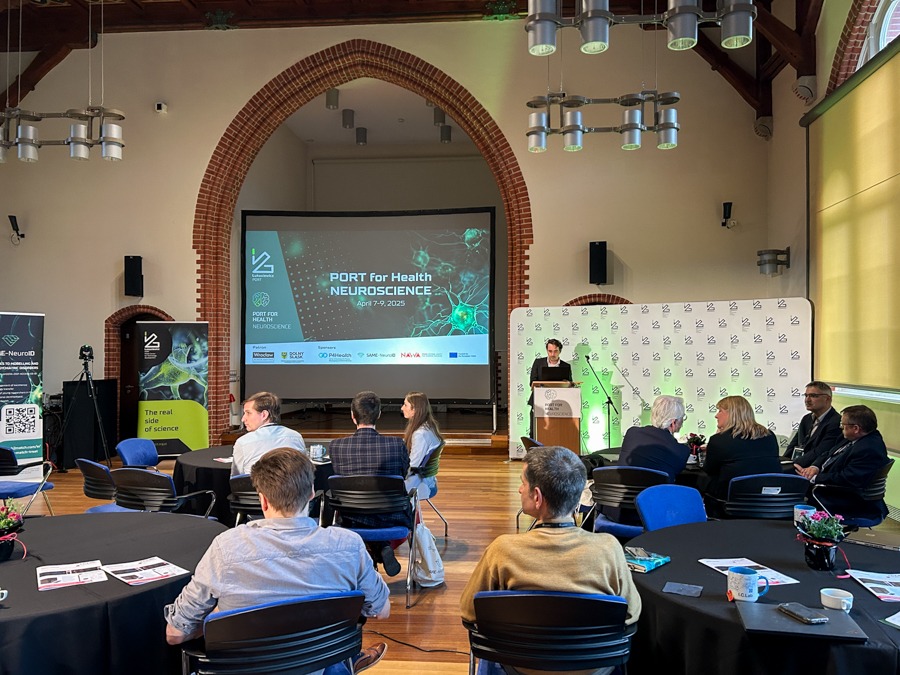
Successes and setbacks
A cornerstone of his mission is supporting young researchers. “Science isn’t a sprint – it’s a marathon. It requires long-term planning. That’s why it’s so important for our young scientists to go abroad, build networks, learn, and come back with new experience,” he explains. He is also candid about the reality of the scientific path: “For every successful experiment, there are a thousand that don’t work.”
According to Dr. Kucharczyk, the English word perseverance best captures what science truly demands: “Persistence, despite everything. It’s not enough to study hard, get good grades, or work long hours – you also need luck. And luck, like buses, sometimes comes in pairs, and sometimes doesn’t come at all. That’s when perseverance matters most.”
